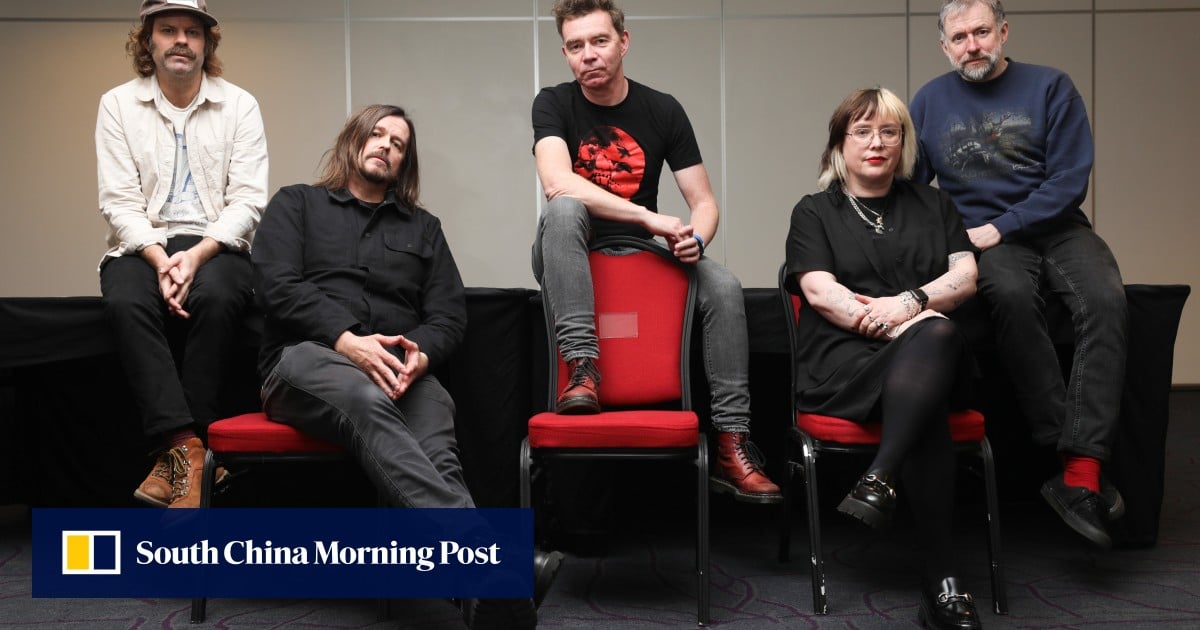A lot has happened since Slowdive’s fifth album, in 2017, that has contributed to the band’s collective psyche.

“When you get older, things change around you and you get a little bit reflective. It definitely feels different.”
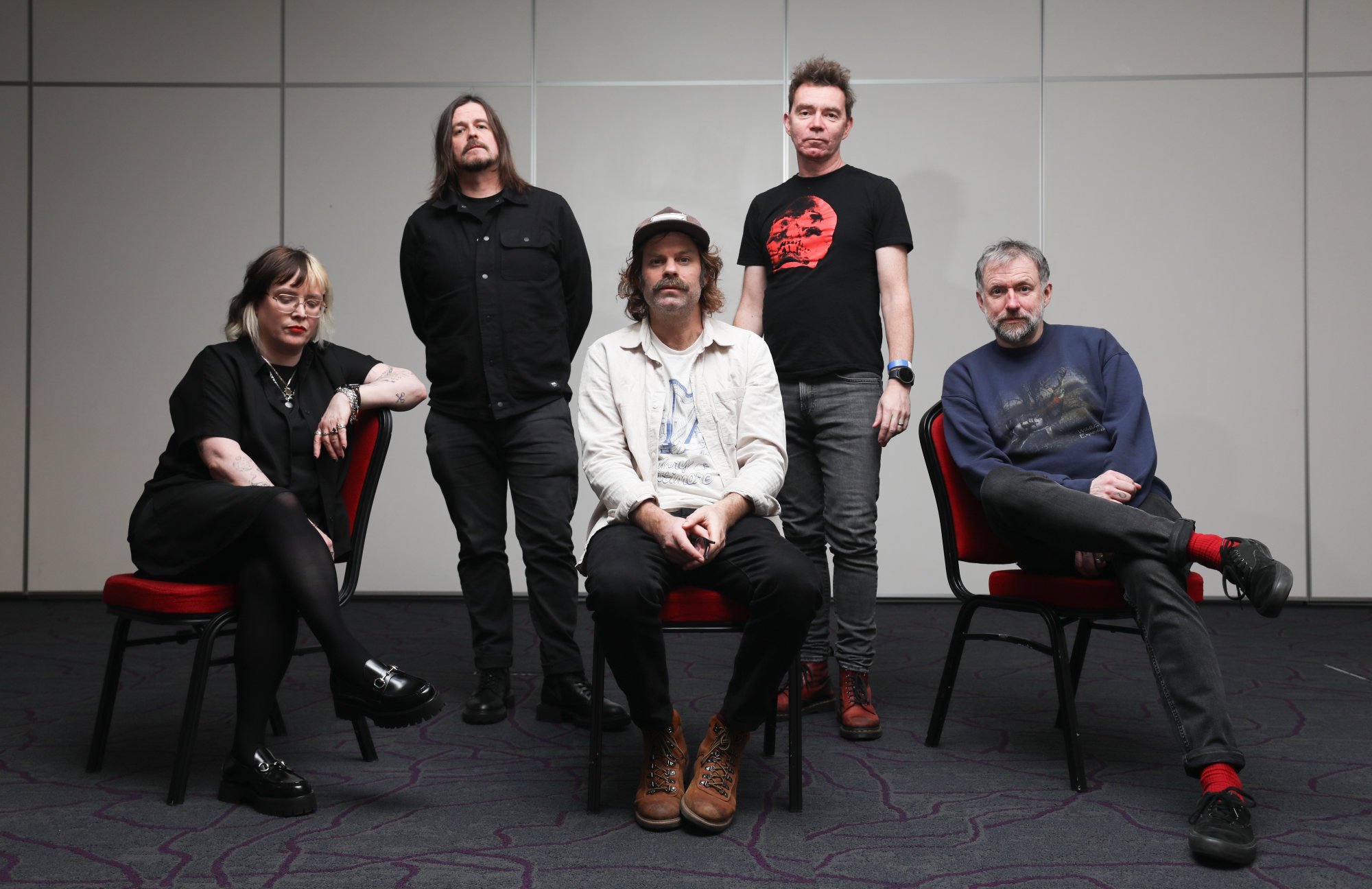
Still, that does not mean the new album is depressing. There is a pensiveness to the compositions – a “slow dive”, if you will – but despite the ageing and Covid, the songs remain poetically bright, with titles such as “Kisses”, “Skin in the Game” and “Alife”.
“We have common ground in the bands that we like,” says Goswell, citing Australian goth darlings Nick Cave and the Bad Seeds as “a constant throughout my life since I was 16”, while North American folk musician Joni Mitchell is another one of her favourites. “But I think we’re all quite eclectic in the music we listen to.”
Goswell says she also enjoys Newcastle-formed indie rock band Lanterns on the Lake, with British East Asian musician Angela Chan on classical string instruments.

Savill, on the other hand, does not reveal his personal music taste as “we’re playing music all the time” and he sometimes just wants to “give your ears a rest”.
For the other members though, he says that vocalist, guitarist and primary songwriter Neil Halstead is more into electronic, minimalist and synthy sounds, as is drummer, guitarist and electronic musician Simon Scott, who is often in charge of audio post-production.

“With our records, there’s compromise all over them,” says Goswell. “Neil [Halstead] had sent us about 40 pieces of music – some more fully formed songs, some snippets – and we whittled them down to 15 that we agreed on, then we whittled down further to eight, which were all democratically chosen.
“We agreed on everything that went on the record, even the running order.”
Savill chimes in, “It doesn’t always work like that, but we all kind of know each other’s strengths and weaknesses now. We’re still fans of pop music as well as everything else, which is gonna sneak in every now and then. But we never think ‘we need a hit’ or ‘we want it to be about this’; we just happened to all choose these particular songs.”

Slowdive formed at the tail end of the 1980s in Reading, southern England, when all the members were in their late teens. Before that, a 15-year-old Goswell had already started a band with schoolmate Halstead.
A few years on, with the addition of Chaplin, Savill joined, the only person that replied to an advert calling for a female guitarist.
“We thought it’d be a good balance to have more than one female [and Savill] said he’d wear a dress if he needed to,” Goswell laughs. “Still waiting for that, but we did say that this year would be the year he did it – maybe at a festival.”
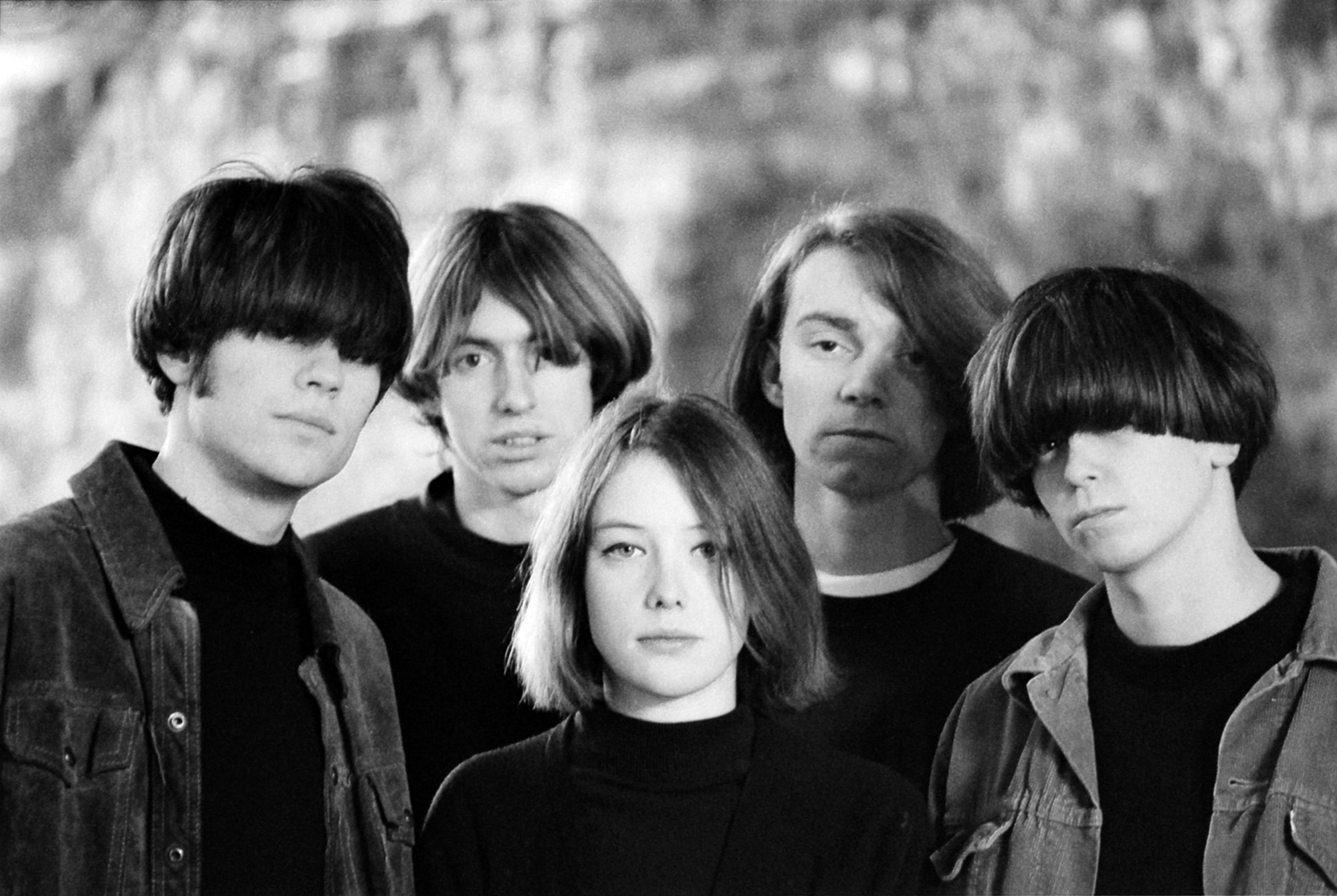
The band members were aged 19 and 20 when they released their first, self-titled EP in 1990, to critical acclaim. With Scott on the drums in the final formation of the group, they put out their 1991 debut album, Just for a Day, to mixed reviews.
In the first half of the 1990s, the British music press grew increasingly dismissive of the newly devised shoe-gazing, as Britpop and grunge began to dominate. While some bands might pander to the mass taste for trendier tunes, Slowdive did not budge.
“When we started out, the shoegaze genre didn’t exist,” says Savill. “There were some common bands that we all liked and we knew how we wanted to sound, which is what we’ve done throughout.
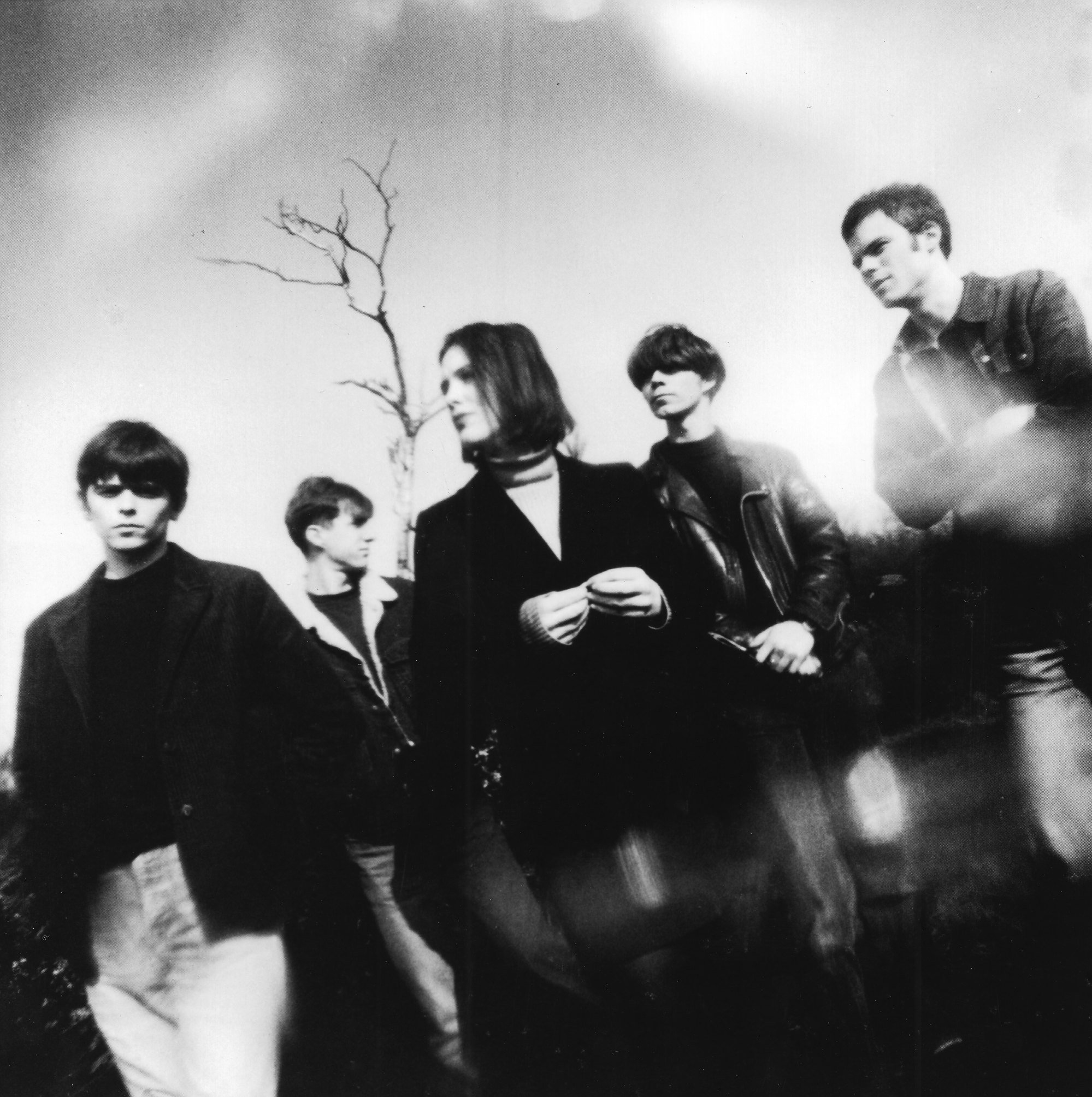
“We’ve just sort of stayed in our little bubble, really, and made the records we wanted to make.”
In 1995, Slowdive were dropped by their first record label a week after the release of their third studio album, Pygmalion, their least commercially successful. So the band broke up.
At this point, the members were only in their mid-twenties. For the near-two decades that followed, they worked on respective projects in various genres, from country, to dream-pop, to electronic.
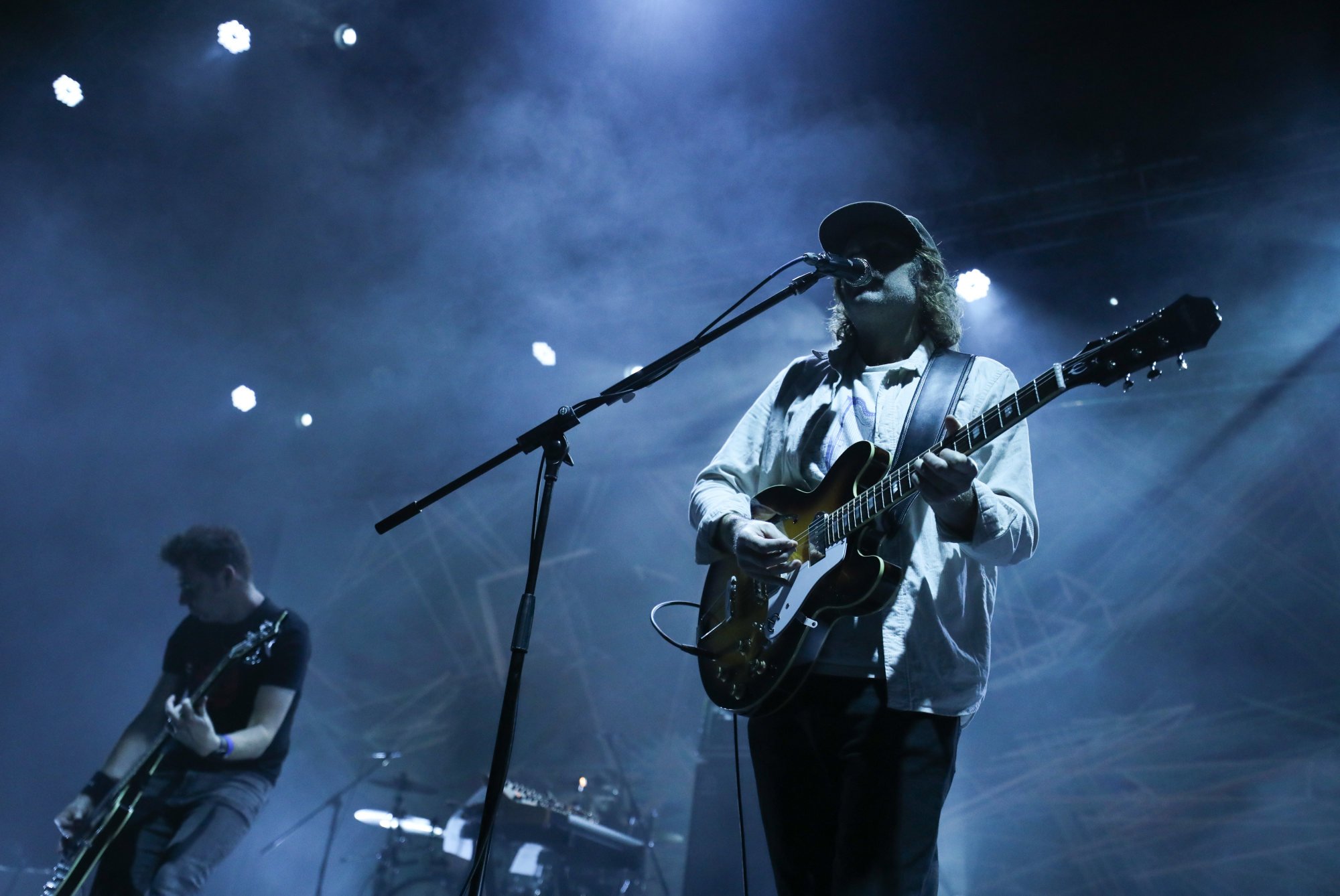
The members often joined forces, but the music remained different from their inaugural efforts in shoegaze.
In 2014, the band reunited and toured the world, which included a date in Hong Kong. It was the first and only time they performed in the city, until now.
In 2017, they released the eponymous Slowdive, their fourth full-length record and first together in 22 years. At its peak, it ranked third on Billboard’s United States independent albums category and was included in several best rock albums of the year accolades.
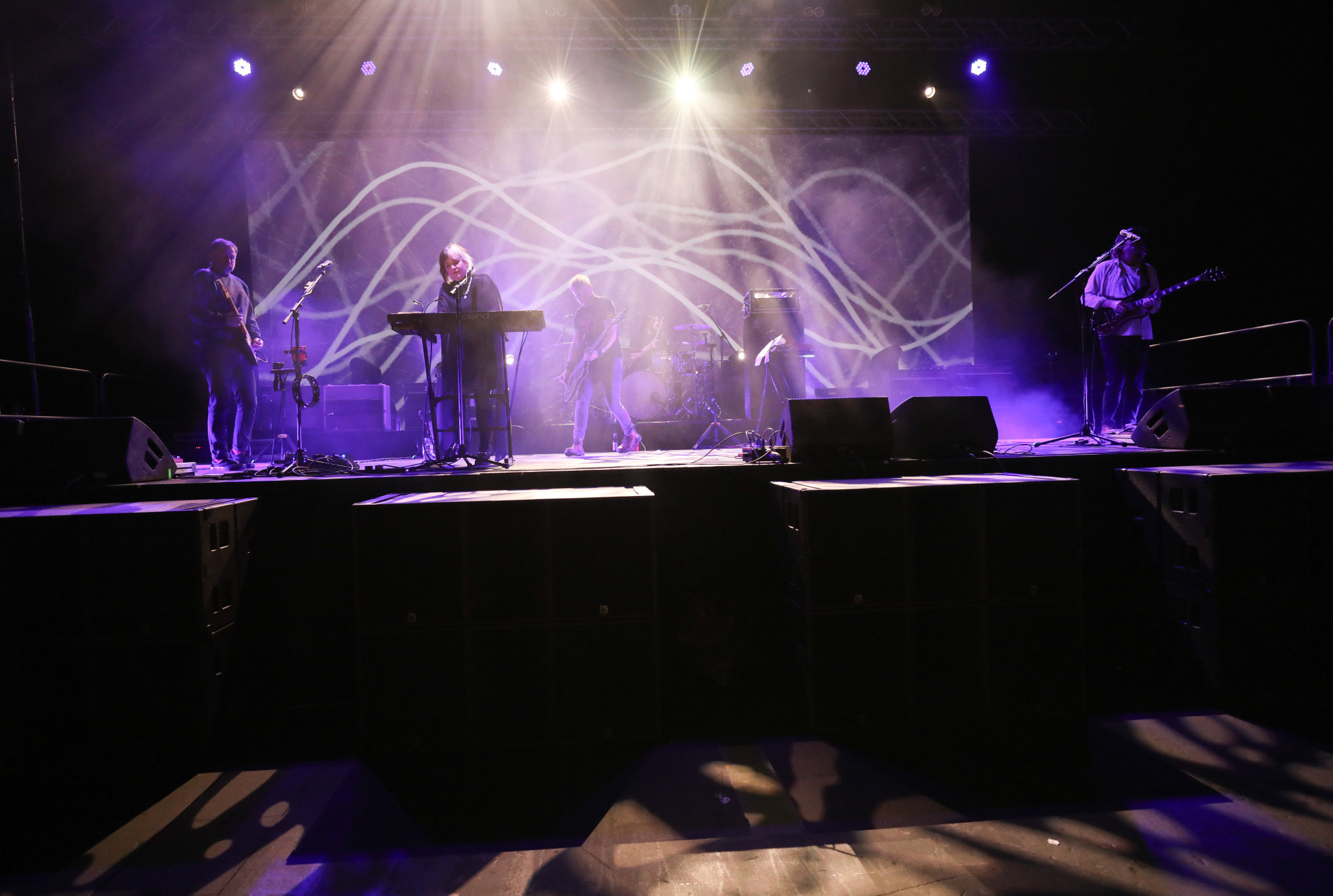
Between 2020 and 2023, and between Covid delays, the band worked on their fifth studio project, Everything is Alive, which took top spot in the British independent album charts.
“We don’t even call it a reformation any more – we’re now on our 10th year together, longer than we were the first time,” says Goswell. “I think being older, we certainly appreciate it more now than we would’ve done when we were 20. We’re all quite different personality-wise, but it’s like a chosen family.”
When it comes to their lyrics, Savill admits that the band is not one “with a political agenda or message, which doesn’t mean we’re not political in our personal lives.”
Goswell describes Slowdive more as “escaping from the mundane and being able to switch off and downregulate – it’s my favourite word these days. We’re privileged to be able to switch off instead of living through things that are going on.”

